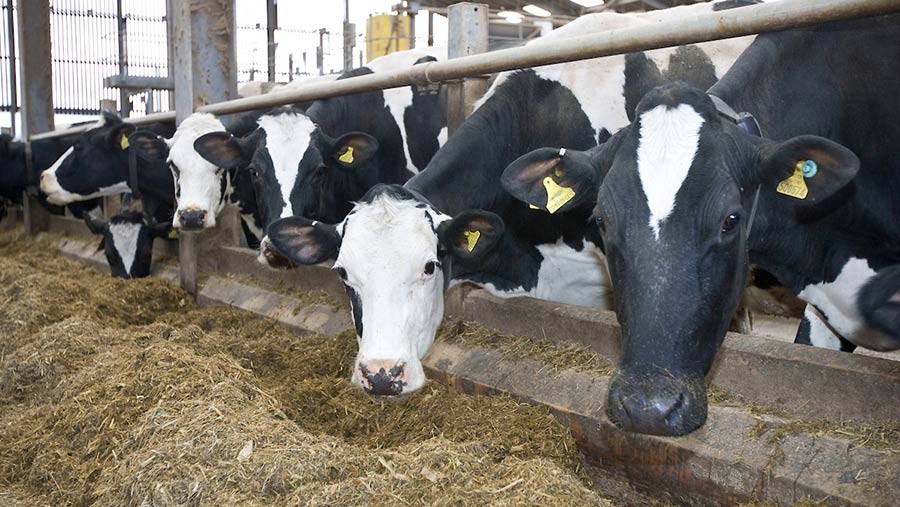Fairer pricing for dairy farmers promised in new legislation
 © Tim Scrivener
© Tim Scrivener Dairy farmers are to be given more say over the way their milk contracts are agreed and managed, which should lead to improved transparency and fairer prices.
That is the promise from the government as it prepares to table new legislation “later this year” designed to establish greater stability and accountability across the dairy supply chain.
See also: Dairy farmers urged to complete survey on milk production future
The new regulations, which will be phased in over two years, will enable farmers to challenge prices, stop contract changes being imposed on them without agreement, and ensure they can more easily raise concerns.
Defra farming minister Mark Spencer said: “Farmers must be paid a fair price for their produce and these regulations will provide price certainty and stability by establishing written milk purchase agreements with clear and unambiguous terms.
“This represents a key milestone in our commitment to promote fairness and transparency across food supply chains, to support farmers and build a stronger future for the industry.”
The regulations will mean:
- Farmers have clearer pricing terms, with contracts setting out the factors that generate the milk price and allowing farmers to challenge prices if they feel this process isn’t being followed.
- Changes to contracts can’t be imposed on farmers without their agreement, therefore encouraging dialogue between the parties where changes do need to be made.
- Farmers’ contracts will all include a straightforward way to raise concerns, promoting accountability and timely issue resolution.
- There will be clear rules put in place on notice periods and contractual exclusivity, protecting the rights of both buyers and sellers.
- An enforcement mechanism will be created to guarantee the regulations are followed.
Ombudsman
Speaking to Farmers Weekly at the Great Yorkshire Show on Tuesday (11 July), Mr Spencer explained that an ombudsman would be appointed to ensure the regulations were being met.
“In the past, there hasn’t been a referee, so the only thing you can do is walk away from the contract if someone is mistreating you,” he said. “We’ve yet to appoint that regulator, but it will be an internal person from Defra, appointed by Defra.”
The new regulator would have the power to impose penalties for breaches of the regulation, Mr Spencer added.
“It’s yet to be determined, but certainly stepping in and really slapping down these people if they have committed a crime in terms of the contract is part of making this work.”
Discussions
The regulations have been drawn up following detailed discussions with key industry players, including the NFU and Dairy UK.
NFU dairy board chairman Michael Oakes described them as a “significant step forward” in efforts to increase fairness and transparency in the supply chain.
“For a long time, unfair milk contracts have held British dairy businesses back, and these changes will give farmers much-needed business security and confidence, as well as helping to share risk along the dairy supply chain.”
Dairy UK was less enthusiastic in its response, stressing that the new regulation still needed to strike the right balance between greater transparency and “maintaining the flexibility the industry needs to compete in a volatile and increasingly competitive marketplace”.
Background explainer
The announcement of new regulations follows a 2020 consultation on whether mandatory terms should be introduced for dairy contracts – for example, in relation to pricing, volumes, notice periods, exclusivity clauses and methods of dispute resolution.
This consultation was prompted by a previous review of supply chain fairness by the groceries code adjudicator, which found imbalances of power in the dairy supply chain, such as buyers having discretion to change prices and terms without notice or negotiation.
Defra said back in December 2021 that the responses to the consultation clearly demonstrated the need to require certain standards for contracts between milk producers and milk buyers.
The announcement of new regulations comes 18 months later, during which time dairy prices soared to new peaks of more than 50p/litre in 2022, but have since slumped back to about 35-37p/litre, which puts many producers in a loss-making position.
